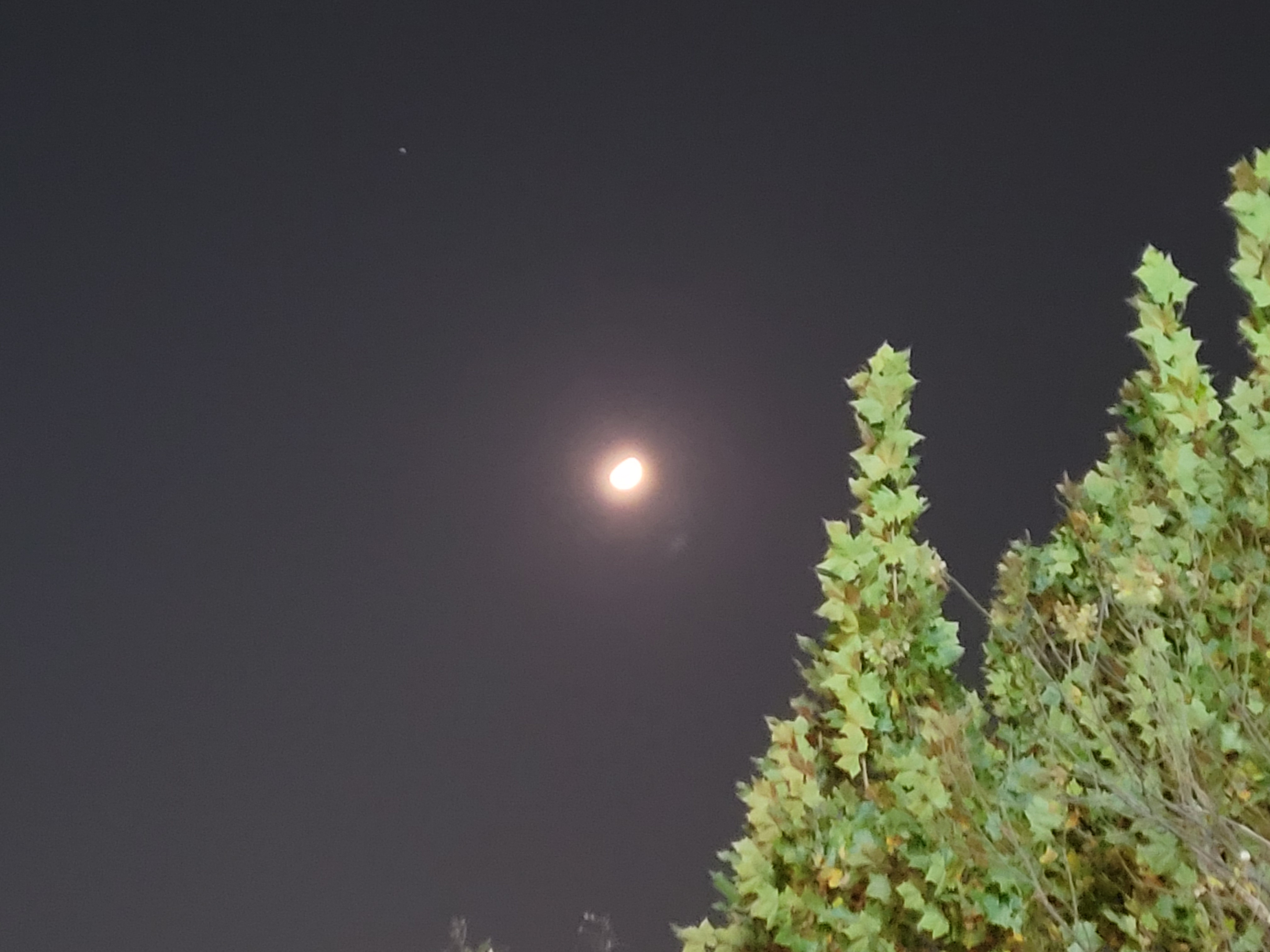 Truth is beyond the time domain!
Truth is beyond the time domain!
So, which is the most universal and is not bound to the time boundary?
I can get only one thing this is the truth. The only thing that is not bound to the time of anything, truth is always truth!
There is no negotiation there is no opposition there is no confusion as truth is always truth.
But unfortunately the human civilization is going backward from the truth. And it will lead the whole world to callapae oneday.
The articles about Hassan, a handsome man from the Indian subcontinent who came to East Asia from the Indian subcontinent, always give me new fun and excitement!😃
For over 2000 years, East Asian men have been fascinated and intrigued by the civilizations of the Indian subcontinent!
The Myth of Indian Beauty Created by Modern East Asian Men
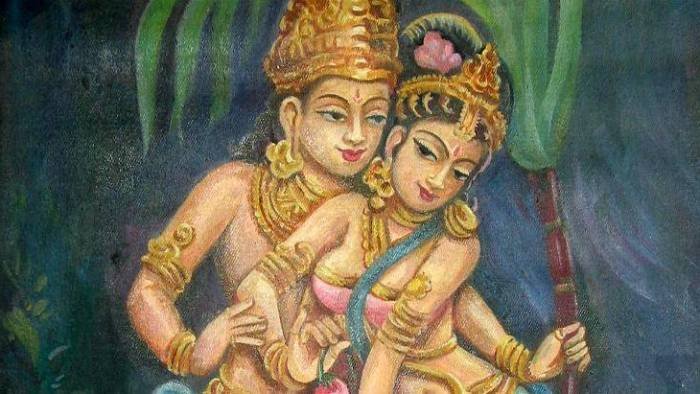
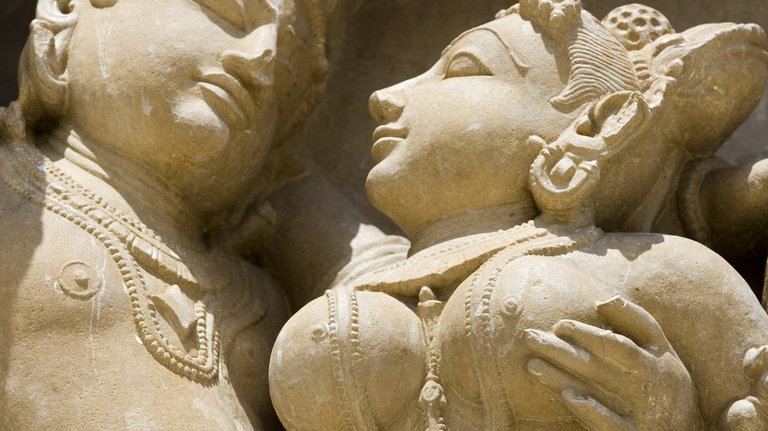
As I read the articles I wrote for Hassan, I felt ashamed of my rude and awkward English sentences!😂
Wouldn't Hassan be offended by the fact that when ordinary East Asian men like me think of the civilizations of the Indian subcontinent, the first thing that comes to mind is Indian women?
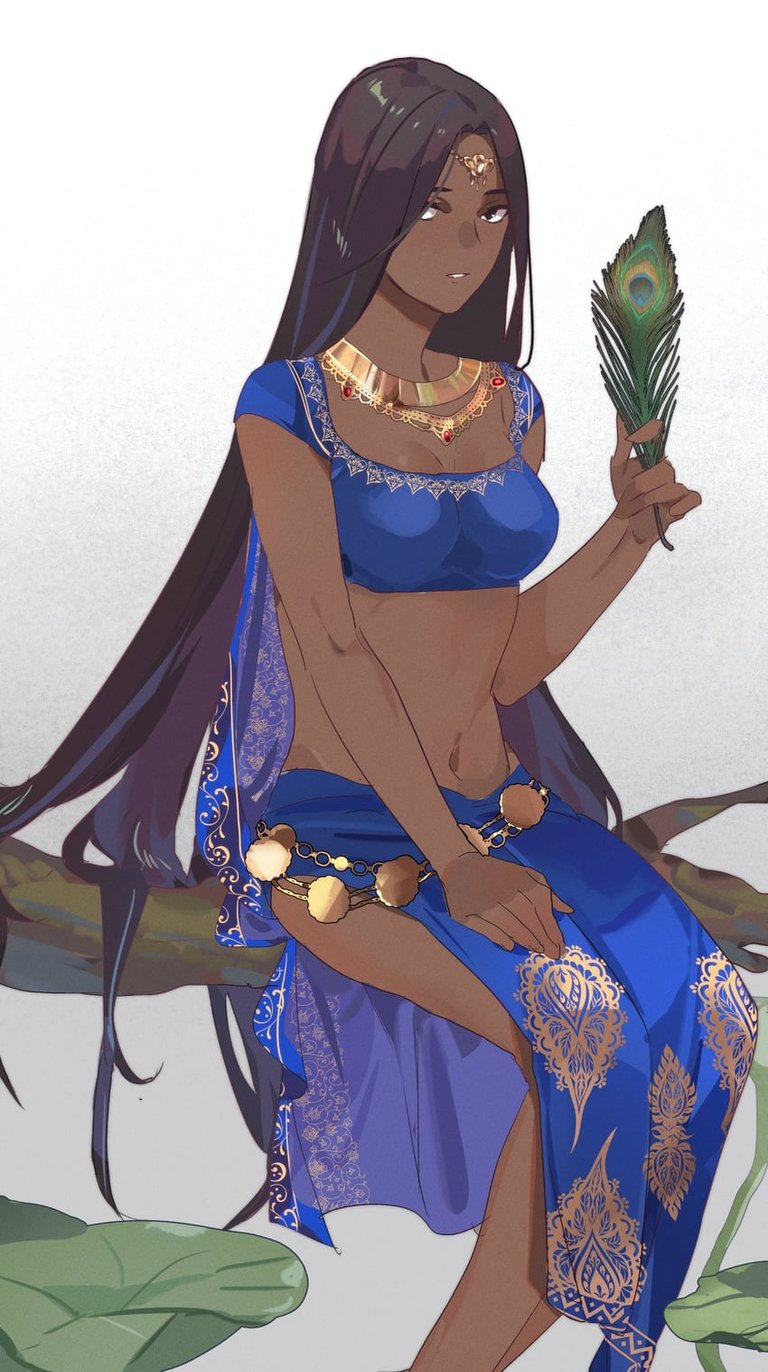
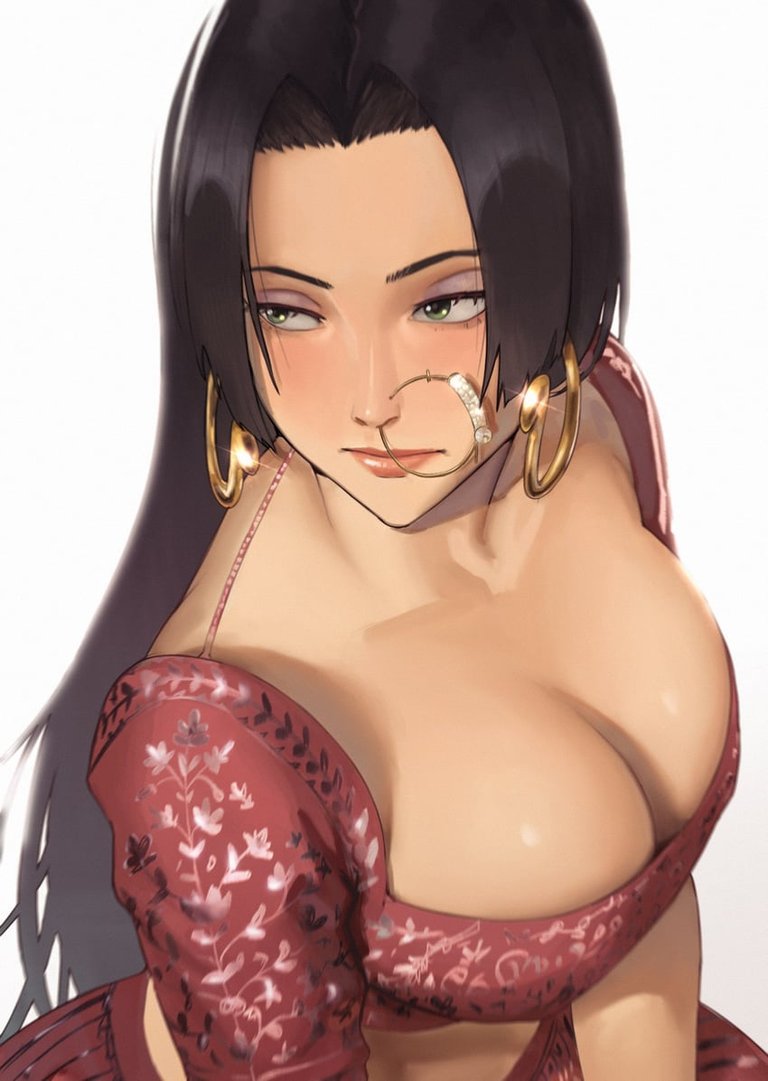
I wanted to tell Hassan that paintings and sculptures of women from the Indian subcontinent have had a great impact and fascination on East Asian men since 2,000 years ago!😅
It might be offensive to Hassan, a devout Muslim, but East Asian men are attracted to the physical attractiveness of Hindu women.
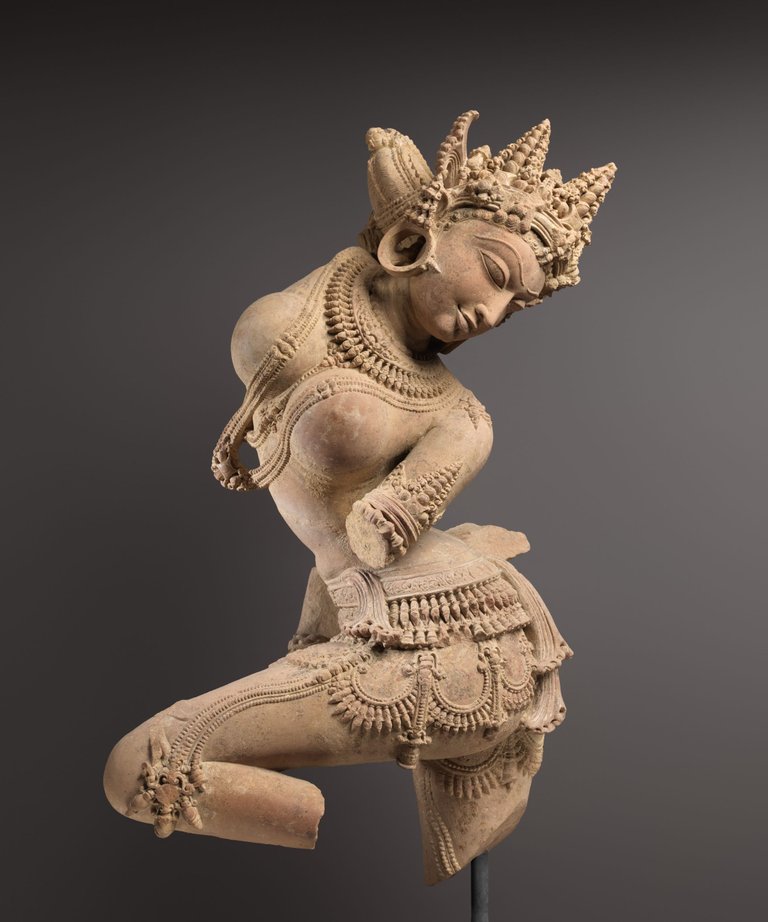
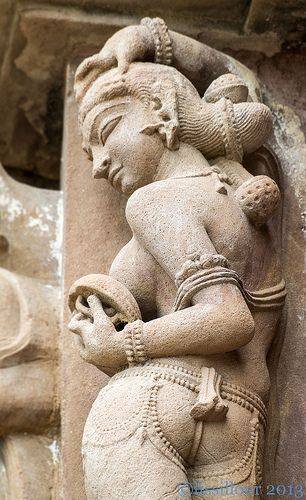
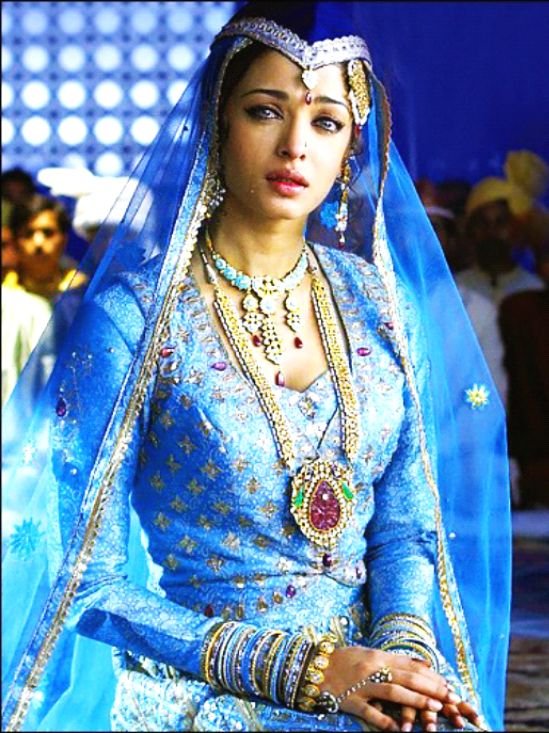
The Hindu and Buddhist images of women in the Indian subcontinent still receive great interest and love from East Asian men to this day.
 A commemorative Rs. 5.00 postage stamp on Queen Heo Hwang-ok was issued by India in 2019.
A commemorative Rs. 5.00 postage stamp on Queen Heo Hwang-ok was issued by India in 2019.
Heo Hwang-ok (Korean: 허황옥; Hanja: 許黃玉; 32AD – 189AD) also known as Empress Boju (보주태후; 普州太后),[2] was a legendary queen mentioned in Samguk yusa, a 13th-century Korean chronicle. According to Samguk Yusa, she became the wife of King Suro of Geumgwan Gaya at the age of 16, after having arrived by boat from a distant kingdom called "Ayuta".[3] Her native kingdom is believed to be located in India.[3][4] There is a tomb in Gimhae, South Korea, that is believed to be hers,[5] and a memorial in Ayodhya, India, built in 2020.[6] The Ayuta Kingdom (아유타국; 阿踰陁國) is also considered as a misinterpretation of the Ay Kingdom, a vassal to the Pandyan Empire of the ancient Tamilakam, the predecessor of the modern-day Tamil Nadu in southern India.[7]
Heo Hwang-ok (Korean: 허황옥; Hanja: 許黃玉; 32AD – 189AD) is believed to have been an Indian woman who married a Korean king 2,000 years ago.
Heo Hwang-ok (Korean: 허황옥; Hanja: 許黃玉; 32AD – 189AD) is remembered as the first Indian woman to spread Buddhism on the Korean Peninsula!
Historians speculate that Buddhism spread to East Asia when East Asian kings married Indian women.
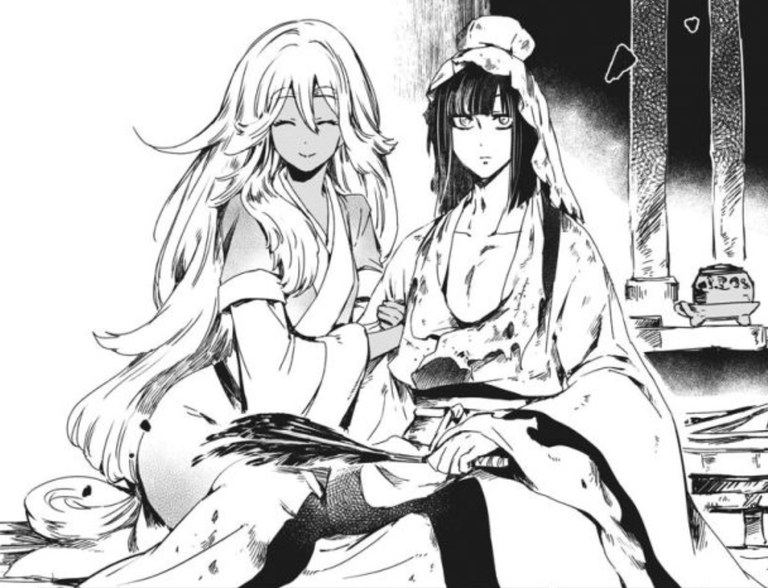
Chinese royalty married Indian woman

Bangladeshi woman and East Asian men
Many East Asian men who saw that attractive Bangladeshi woman said they would marry her.😊
The Indian subcontinent beauty that East Asian men envision has slightly darker skin tones.
Women from the Indian subcontinent have been captivating East Asian men for over 2000 years!😄
People from the Indian subcontinent are racially white, but their skin is darker than that of East Asians, which many East Asians find strange.
I thought perhaps the skin of the current Indian subcontinent people is a bit darker due to the mixing of Aryans and Dravidians over 3000 years.
Many East Asian men find the somewhat darker skin of women from the Indian subcontinent more beautiful and attractive than that of Europeans! 😄
For over 2,000 years, Indian men have allowed Indian women to freely marry East Asian men.
So, To this day, many East Asian men harbor sexual fantasies about women from the Indian subcontinent.😄
 Taj Mahal
Taj Mahal
The Taj Mahal (/ˌtɑːdʒ məˈhɑːl, ˌtɑːʒ -/ TAHJ mə-HAHL, TAHZH -, Hindi: [taːdʒ ˈmɛɦ(ɛ)l]; lit. 'Crown of the Palace') is an ivory-white marble mausoleum on the right bank of the river Yamuna in Agra, Uttar Pradesh, India. It was commissioned in 1631 by the fifth Mughal emperor, Shah Jahan (r. 1628–1658) to house the tomb of his beloved wife, Mumtaz Mahal; it also houses the tomb of Shah Jahan himself. The tomb is the centrepiece of a 17-hectare (42-acre) complex, which includes a mosque and a guest house, and is set in formal gardens bounded on three sides by a crenellated wall.
The Taj Mahal is thus a building that provides endless inspiration, imagination, and charm to East Asian men.
For East Asian men like me who have been fascinated by the physical charm of the women of the Indian subcontinent for over 2,000 years, the Taj Mahal is considered the architectural symbol of the Indian subcontinent.
After Mumtaz Mahal died, Shah Jahan wandered around like a madman, calling her name.
Shah Jahan began building the Taj Mahal to create a symbol of his everlasting love for Mumtaz Mahal.
Shah Jahan used to call Mumtaz Mahal's name every day in conversation. He wasted the country's finances building the Taj Mahal, and the country was on the verge of bankruptcy.
So, Aurangzeb ousted Shah Jahan from the throne and stopped the construction of the Taj Mahal.
Shah Jahan, driven from the throne, ended his life in solitude.
This is a very shocking historical event, as no king in East Asia was driven out for building a tomb for his dead wife like Shah Jahan.😳
Shah Jahan's blind and fanatical love for Mumtaz Mahal thus garners even more admiration and sympathy from East Asian men.
Shah Jahan was a very honest and sentimental person.
So, Many East Asian men love the Taj Mahal, which was built by Shah Jahan as a symbol of his everlasting love for Mumtaz Mahal!
 An 18th-century painting of Padmini
An 18th-century painting of Padmini
Padmini, also known as Padmavati, was a 13th–14th century Rani (queen) of the Mewar kingdom of present-day India. Several medieval texts mention her, although these versions are disparate and many modern historians question the extent of their overall authenticity.[2]
The Jayasi text describes her story as follows: Padmavati was an exceptionally beautiful princess of the Sinhalese kingdom (in Sri Lanka).[a] Ratan Sen, the Rajput ruler of Chittor Fort, heard about her beauty from a talking parrot named Hiraman. After an adventurous quest, he won her hand in marriage and brought her to Chittor. Ratan Sen was captured and imprisoned by Alauddin Khalji, the Sultan of Delhi. While Ratan Sen was in prison, the king of Kumbhalner Devapal became enamoured with Padmavati's beauty and proposed to marry her. Ratan Sen returned to Chittor and entered into a duel with Devapal, in which both died. Alauddin Khalji laid siege to Chittor to obtain Padmavati. Facing a defeat against Khalji, before Chittor was captured, she and her companions committed Jauhar (self-immolation) thereby defeating Khalji's aim and protecting their honour. Coupled to the Jauhar, the Rajput men died fighting on the battlefield.
Many other written and oral tradition versions of her life exist in Hindu and Jain traditions. These versions differ from the Sufi poet Jayasi's version. For example, Rani Padmini's husband Ratan Sen dies fighting the siege of Alauddin Khalji, and thereafter she leads a jauhar. In these versions, she is characterised as a Hindu Rajput queen, who defended her honour against a Muslim invader. Over the years she came to be seen as a historical figure and appeared in several novels, plays, television serials and movies.
The legend of the Indian beauty queen Padmavati is very famous among East Asian men. Her tragic end, where she chooses suicide when an enemy king invades after seeing her beauty, gave East Asian men the impression that Hindu sati is barbaric and cruel.
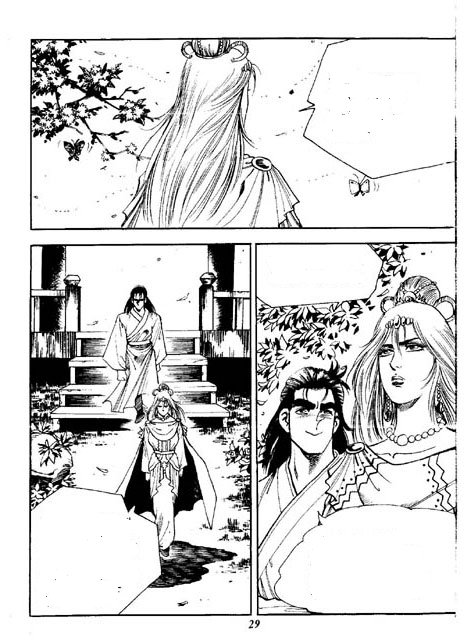
A man from East Asia has recreated the legend of Padmavati in an East Asian version.
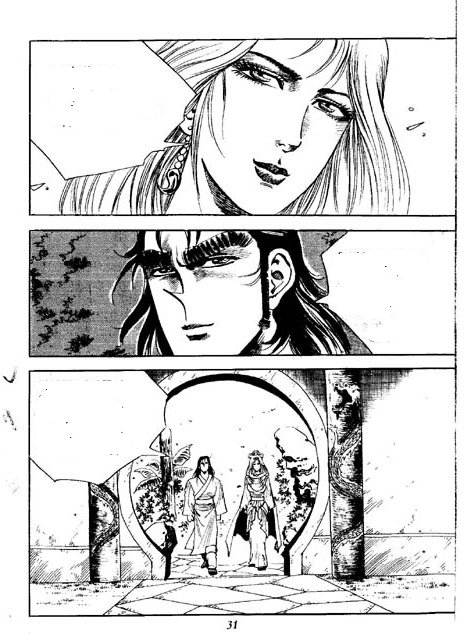
A Chinese prince came to India to meet Padmavati.
In East Asia, Padmavati was famous for being the most beautiful woman in the world.
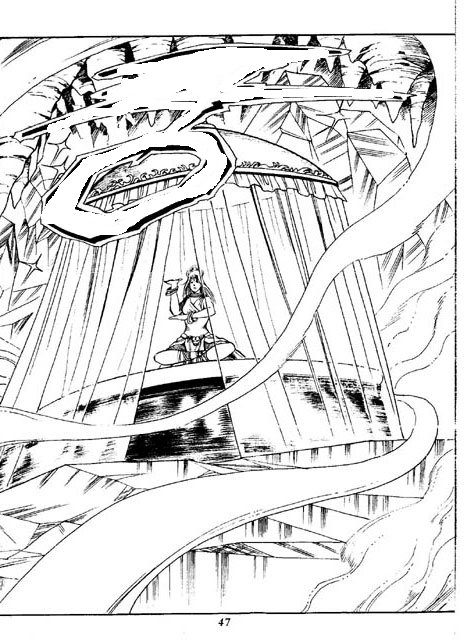
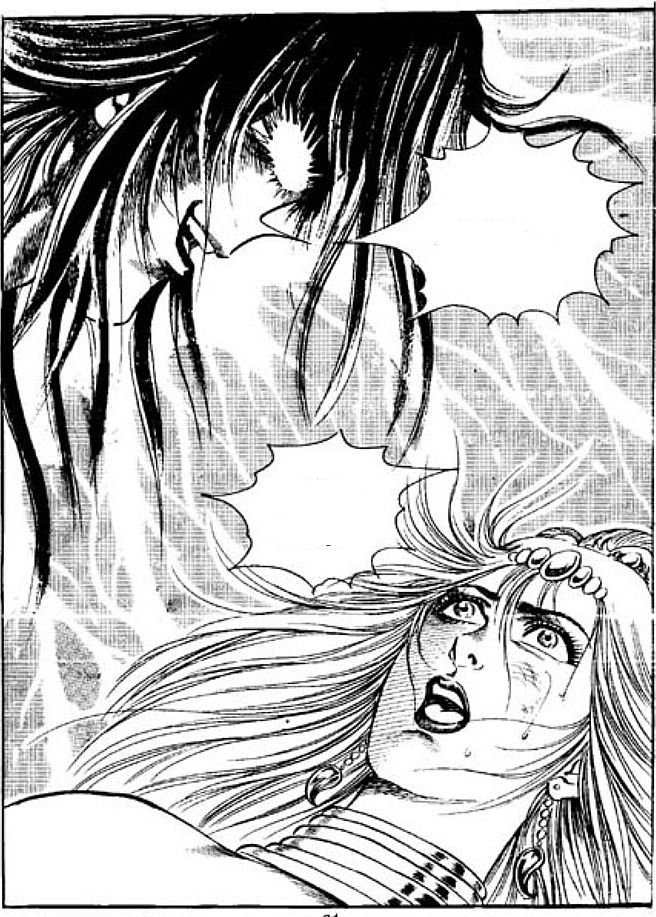
A Chinese prince sneaked into Padmavati's room, spied on her, and raped her.
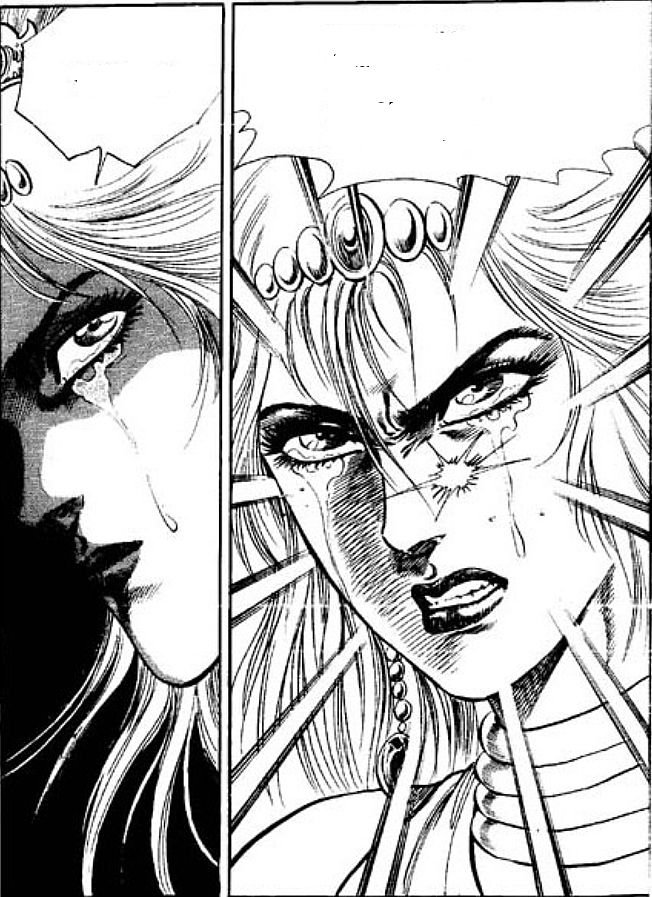
The Chinese prince fled to China and Padmavati swore revenge.

Padmavati led an army to invade China and took the Chinese prince captive.
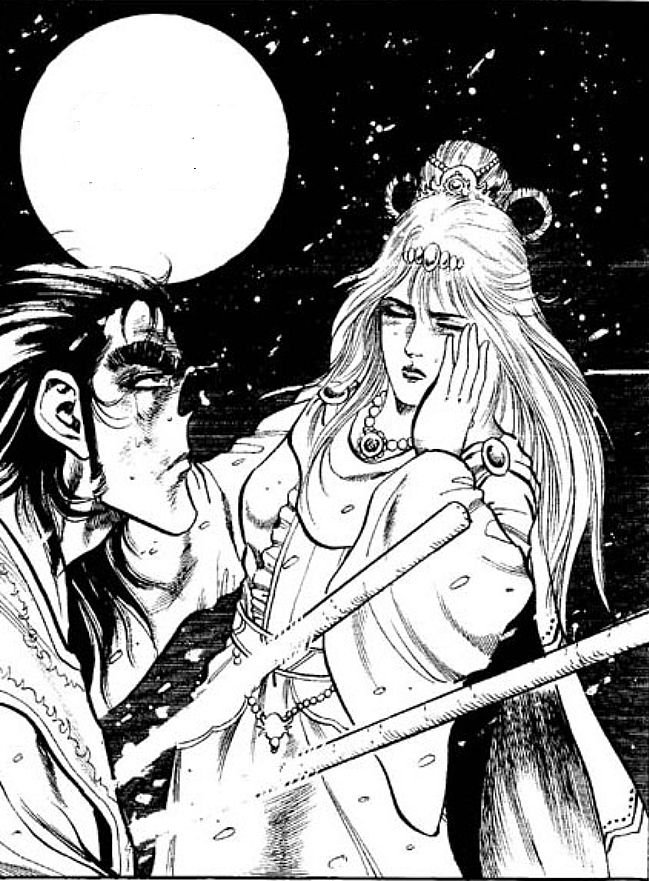
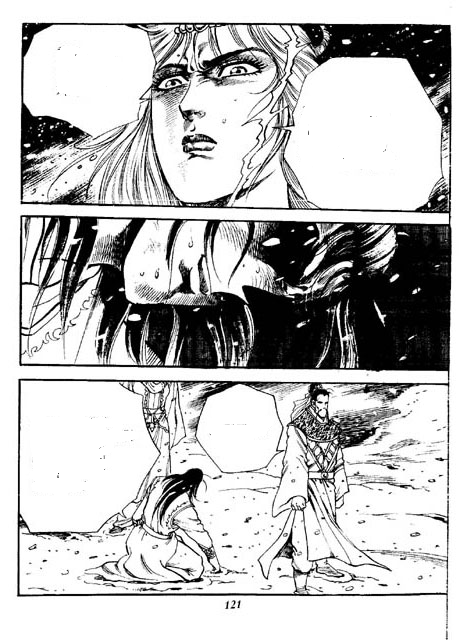
Padmavati was pregnant with the child of a Chinese prince. Padmavati said that she would forgive the prince's sins if he gave her the position of empress of China.
The story ends with Padmavati becoming the Empress of China. It is questionable whether the Chinese prince would have been happy in his marriage with the world's most beautiful woman, Padmavati!
The Chinese today want to hide the historical record that there was an empress of China of Indian origin.
Because it is a dishonorable past for the Chinese people.
The legend of Padmavati, newly created by an East Asian man, reveals that the construction of the anicent East Asian civilization began when East Asian kings married Indian women and adopted Buddhism.
 Portrait of Mumtaz Mahal on ivory, 17th‑century, held at the Lahore Museum in Lahore, Pakistan
Portrait of Mumtaz Mahal on ivory, 17th‑century, held at the Lahore Museum in Lahore, Pakistan
Mumtaz Mahal (Persian pronunciation: [mum.ˈtɑːz ma.ˈhal]; lit. 'The Exalted One of the Palace'; born Arjumand Banu Begum; 27 April 1593 – 17 June 1631)[6] was the empress consort of Mughal Empire from 1628 to 1631 as the chief consort of the fifth Mughal emperor, Shah Jahan.[7] The Taj Mahal in Agra, often cited as one of the Wonders of the World,[8] was commissioned by her husband to act as her tomb.[9]
Mumtaz Mahal was born Arjumand Banu Begum in Agra to a family of Persian nobility. She was the daughter of Abu'l-Hasan Asaf Khan, a wealthy Persian noble who held high office in the Mughal Empire, and the niece of Empress Nur Jahan, the chief wife of Emperor Jahangir and the power behind the emperor.[10] She was married at the age of 19 on 10 May 1612 or 16 June 1612 to Prince Khurram,[11][12] later known by his regnal name Shah Jahan, who conferred upon her the title "Mumtaz Mahal" lit. 'The Exalted One of the Palace'.[13] Although betrothed to Shah Jahan since 1607,[14] she ultimately became his second wife in 1612.[15][16] Mumtaz and her husband had 14 children, including Jahanara Begum (Shah Jahan's favorite daughter),[17] and the Crown prince Dara Shikoh, the heir-apparent,[18] anointed by his father, who temporarily succeeded him until deposed by Mumtaz Mahal's sixth child, Aurangzeb, who ultimately succeeded his father as the sixth Mughal emperor in 1658.[19]
Mumtaz Mahal died in 1631 in Burhanpur, Deccan (present-day Madhya Pradesh) during the birth of her 14th child, a daughter named Gauhar Ara Begum.[20] Shah Jahan had the Taj Mahal built as a tomb for her, which is considered to be a monument of undying love. As with other Mughal royal ladies, no contemporary likenesses of her are accepted, but imagined portraits were created from the 19th century onwards.
An East Asian man has created a new version of the Indian subcontinent's legend of beauties by mixing the legends of Padmavati and Mumtaz Mahal.
I wonder how beautiful Mumtaz Mahal was. How beautiful were the women of the Indian subcontinent who have fascinated East Asian men with their physical charm for 2000 years?😄
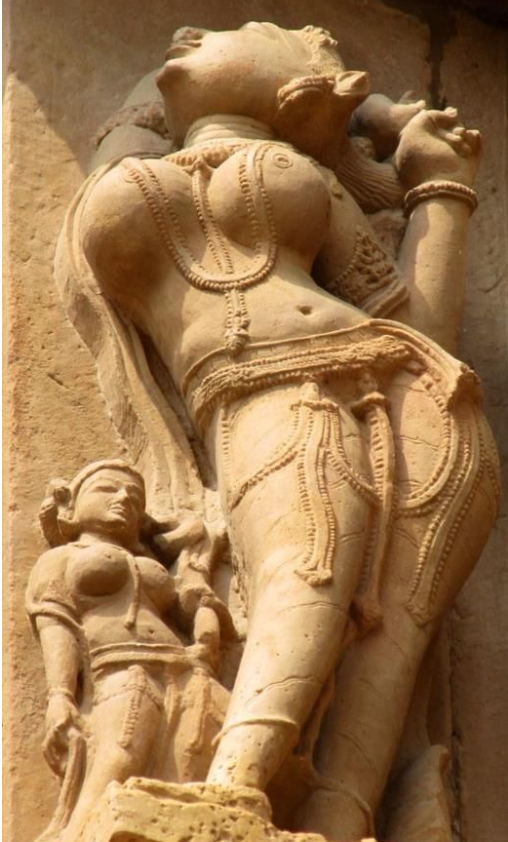
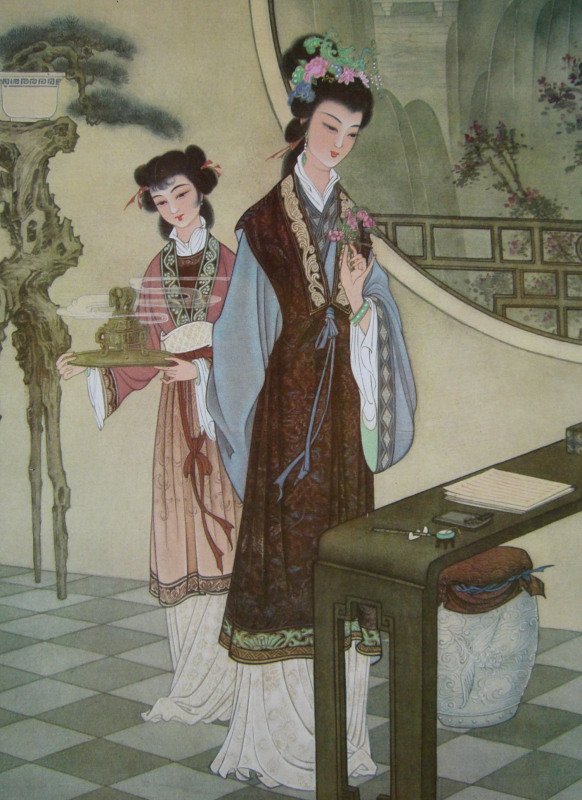
Chinese noblewoman and maid

I regret the custom of not making portraits and sculptures of women in Islamic civilization. If there were portraits and sculptures of Mumtaz Mahal, we would have the opportunity to admire her beauty!😄
I thought the greatness of Indian civilization was that it expressed men's love and desire for women so powerfully and honestly in literature and art!
That's why modern East Asian men are crazy about Kama Sutra!😄
Disclaimer I wonder if my esteemed elder brother Steve is disappointed to see me act like this!
He wanted me to meet Indian people and learn about cryptocurrencies. However, I think I disappointed him. I still don't know anything about cryptocurrencies. Currently, I am mainly writing articles about seducing a handsome man, Hassan.Perhaps I will disappoint Steve so far?😆
Yeah, you are right absolutely, our skin tone is darker and you can find so many variations as we are mixed with the Aryan, Dravidians, and later with the Europeans. Also, the geolocation can be another reason I don't know.
I know you are much more fascinated by Indian girls, you should visit India my friend it is very cheap to visit here compared to any countries of the world.
Dear my bro @tanzil2024 !
Hassan!
I want to travel to the Indian subcontinent. However, I feel that traveling to India is dangerous because my health is not so good!
People have claimed that people who want to travel to India must be very healthy!
Don no batt!
Sorry for your health, take care of yourself first. It is important to travel anywhere to make sure your health is stable enough. I hope you get well soon and visit your dream place.
Dear Hassan!
I don't think I'll be able to adapt to the climate in India.
People who have been to India say that the climate there is very hot and humid, making it easy to get sick.
Malaria is a particularly life-threatening disease for East Asians. That's why there are so many East Asians who have died from malaria in India.
So, I'm planning to travel to the US next year.
I hope to see you in China in the future!
My family saw your face and said you looked like a king of India.😄
I appreciate your kind reply!
Don no batt!